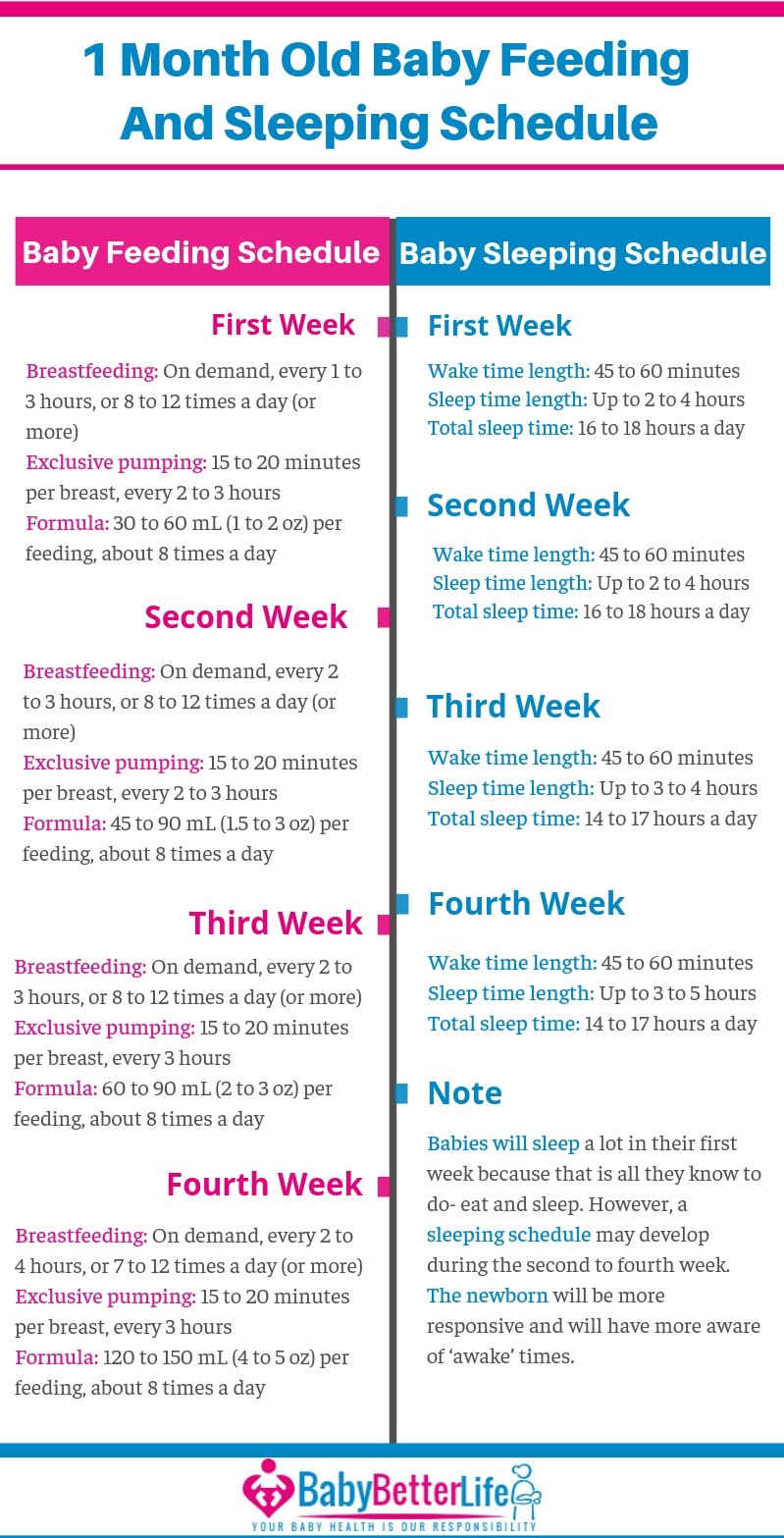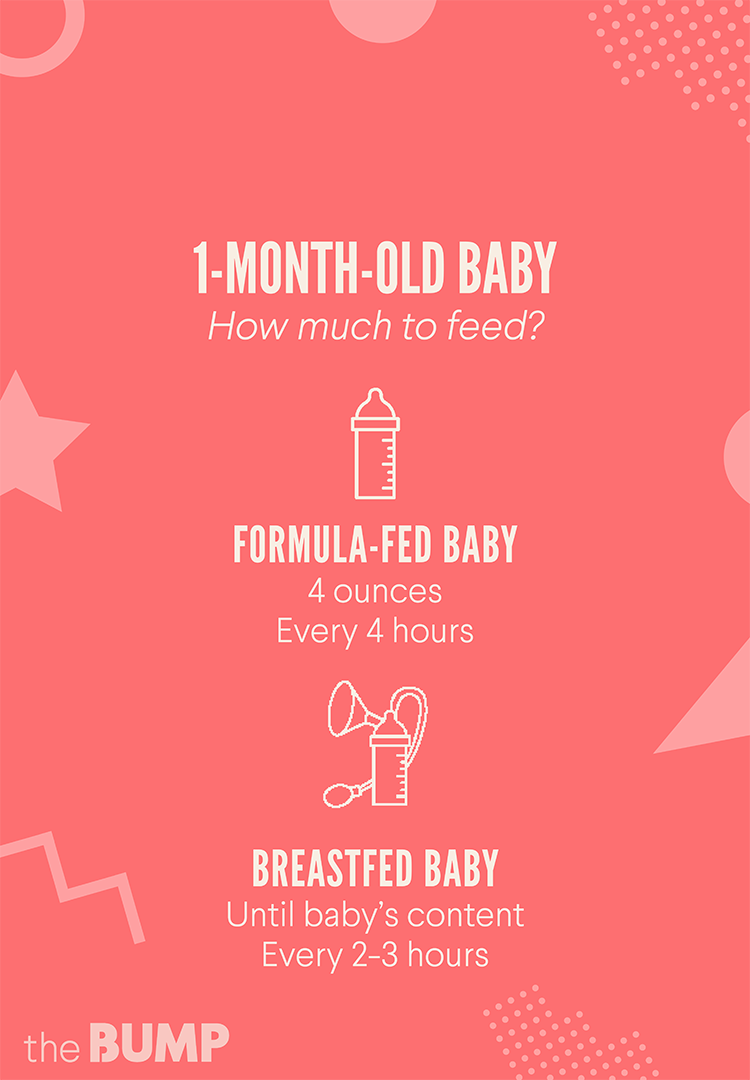1 Months Old Baby Feeding

Contents:
- 1 Month Baby Feeding Amount
- 1 Month Old Baby Feeding Schedule
- Formula Feeding Schedule for Babies 1 Months Old
1 Month Baby Feeding Amount
Here comes the day you have been waiting for the long nine months – you are holding your baby in your hands. Your baby is so defenseless and entirely dependent on you. What should you do now?
The first thing you need to do is breastfeed your baby. Breastfeeding – is the health of both you and your child. Mother's milk should remain the main food of the child up to one year. In the first few days, your body will produce colostrum that contains antibodies and antitoxins, necessary to protect your child and to normalize his digestive tract.
The milk will begin to appear on the third to fifth day after the labor. But beware that if you have a lot of milk, your breasts will bulk up and become painful. Breastfeeding consultant or obstetrician will explain you in the hospital how to express milk in order to prevent engorgement and mastitis. In order for your baby to get enough milk and for you to escape problems with lactation, you need to learn how to apply your baby to your breast. He should totally grab the nipple and the part of the areola. When your baby is eating, you can hear him ingesting milk. Child nutrition in a 1-st month depends in many respects on the correct breastfeeding.
1 Month Old Baby Feeding Schedule

If you have problems with lactation, you are worried that your child does not get enough milk, your milk is too fatty or not fatty enough, contact your breastfeeding consultant. Most often the problem is in the wrong breastfeeding. Breastfeeding in 1-the month of a baby’s life must necessarily be on demand. Let your baby eat when and as much as he wants. By doing so, you stimulate the production of the required amount of milk. During this period, your body is trying to adjust supply to the demand. Breastfeed your baby at least 10 times a day. It is crucial to feed your baby at night because the largest amount of milk is produced from two o'clock until five o'clock. Make sure that your baby properly grabs your nipple. You baby will eat normally and you will have no problems with breastfeeding. Select such a posture for feedings, that would be comfortable for both you and your baby. It is desirable that during feeding you hold your baby close to your body.
Do not give your child a comforter. In no event, you should give him additional water, teas or blends. The mom’s diet is also crucial. The quality of the milk, with which she feeds the child, depends on it. You should consume sufficient amounts of food, but don't overeat. Avoid foods that may cause allergies or stomach problems. The food should be diverse and healthy. With proper nutrition, your baby should gain 800 grams in weight and 3 cm in height over the first month.
If you are unable to breastfeed, you have used all possible means to normalize breastfeeding, but it just does not work, you will have to feed the baby with adapted formula milk or another woman's milk. Consult your pediatrician in order to choose right milk formula for your baby. Strictly follow the instructions. Never prepare the milk formula "by eye". Never feed your baby with a mixture, remaining from the previous feeding. Check the temperature of the mixture. Carefully sterilize the utensils that you use to prepare the mixture and feed your child.